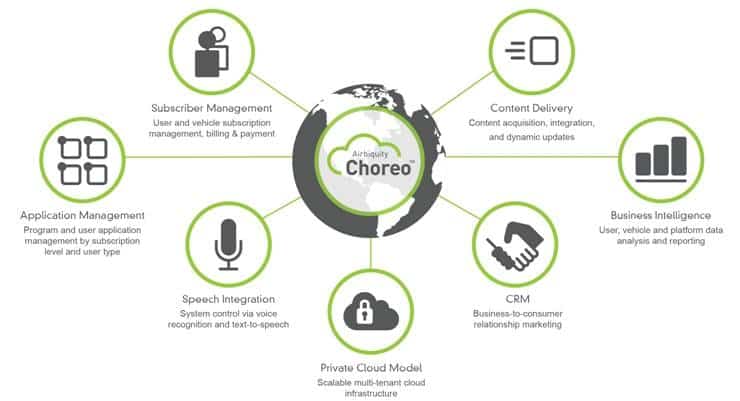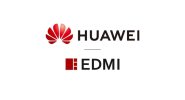By Scott Frank
VP of Marketing
Airbiquity
What’s in store for the connected car in 2015? As an industry pioneer and leading provider of connected car technology and cloud-based service delivery to global automakers we believe there are a few trends that will drive the connected car market in the year to come.
#1: LEADING AUTOMOTIVE MANUFACTURERS WILL EMBRACE BOTH PROPRIETARY AND THIRD PARTY PLATFORMS
Early in 2014 Apple announced the roll out of its CarPlay connected car infotainment delivery solution at the Geneva Motor Show following similar announcements to enter the market from Google with Android Auto in late 2013. These announcements were proof that both Apple and Google see the connected car market as a ripe and maturing opportunity into which to extend their brands, technologies, and content ecosystems. Meanwhile drivers are increasingly becoming aware of connected car technology, what it can do for them, and expecting safe and seamless integration between their mobile devices and their overall driving experiences.
After months of meetings, reviews, and analysis it’s becoming clear not all automakers are willing to cede control of the center console—and more importantly the valuable data being generated by the vehicle and consumers driving them—to third-party technology providers like Apple and Google with their own interests in mind. Connected car technology in today’s leading automobiles represents much more than just another feature – it’s an increasingly important aspect of the in-car ownership and usage experience that automotive brands are now recognizing as critical to maintaining post vehicle purchase customer engagement and building loyalty for the next vehicle sale. Moreover, infotainment delivery solutions are just one dimension of the connected car experience that automakers need to bring to market to meet the needs of their consumers today and tomorrow. Safety and security features like remote vehicle location/immobilization and driving optimization features like battery charge management for EV/PHEV/Hybrid vehicle owners represent significant opportunities for automotive manufacturers to leverage connected car technology to improve vehicle design while delivering added value to their customers.
So will leading automakers cede control of the infotainment connected car experience to companies like Apple and Google? Given the high stakes we believe it’s not an either/or proposition, but rather most automakers—with the strategic intent and means—will deploy a “triple stack” with their own branded proprietary platforms and third-party platforms like Apple CarPlay and Google Android Auto to cover their bases.
Scott Frank,
VP of Marketing,
Airbiquity

#2: THE CONNECTED CAR WILL BECOME THE “INTELLIGENT CAR”
No one seems to question the growth potential of the connected car market. However, many industry observers are working hard to figure out the economic potential of the connected car, and how automakers will benefit financially from increased investments in technology and services over the long term. One area that will eventually contribute meaningful revenue to automakers and their chosen ecosystem of content and services providers will be the evolving concept of the “intelligent car.”
Intelligent car is about a vehicle—and the connected car platform it’s connected to—leveraging multiple data streams with driver preferences, habits, and physical locations to dynamically and proactively serve up real-time, highly relevant communications and promotional offers from local businesses and service providers. The technology is coming together fast to make this a reality - integrated GPS is available in most new cars, and local points of interest and traffic data can be sourced from various cloud-based applications and service providers. What’s missing is the data management and analytic capability and most importantly, new user interfaces for presentation of multi-channel content to the driver in center stack head units, driver instrument clusters, and heads up windshield displays.
We believe that 2015 will see the beginning of this new wave of next generation apps and user interfaces which will demonstrate the value of intelligent car to the automotive industry. An important aspect of powering this next wave of technology and user value that cannot be overlooked will be consumer’s willingness to share their vehicle and personal information as they become increasingly aware of what’s going on behind the scenes from a data perspective. We believe this won’t be an issue for a portion of consumers that are already sharing data in other aspects of their lives as long as there’s a clear benefit for what they get in return (i.e., a coupon to a local Starbucks on their drive home from work as an incentive to stop in and make a purchase). However, an equal number of consumers will likely be very wary to sacrifice their privacy until they more fully understand the implications and get first hand exposure to the benefits. To overcome this, automakers and their ecosystem partners will need to tread carefully in the wake of recent high-profile privacy scandals to ensure they do what’s right for the consumer and provide the necessary assurances and safeguards to build trust.
About The Author:
Scott Frank is the Vice President of Marketing at Airbiquity, a global leader in connected vehicle services with more than 30 million technology-enabled vehicles around the world and the Choreo cloud-based connected vehicle services delivery platform.




















